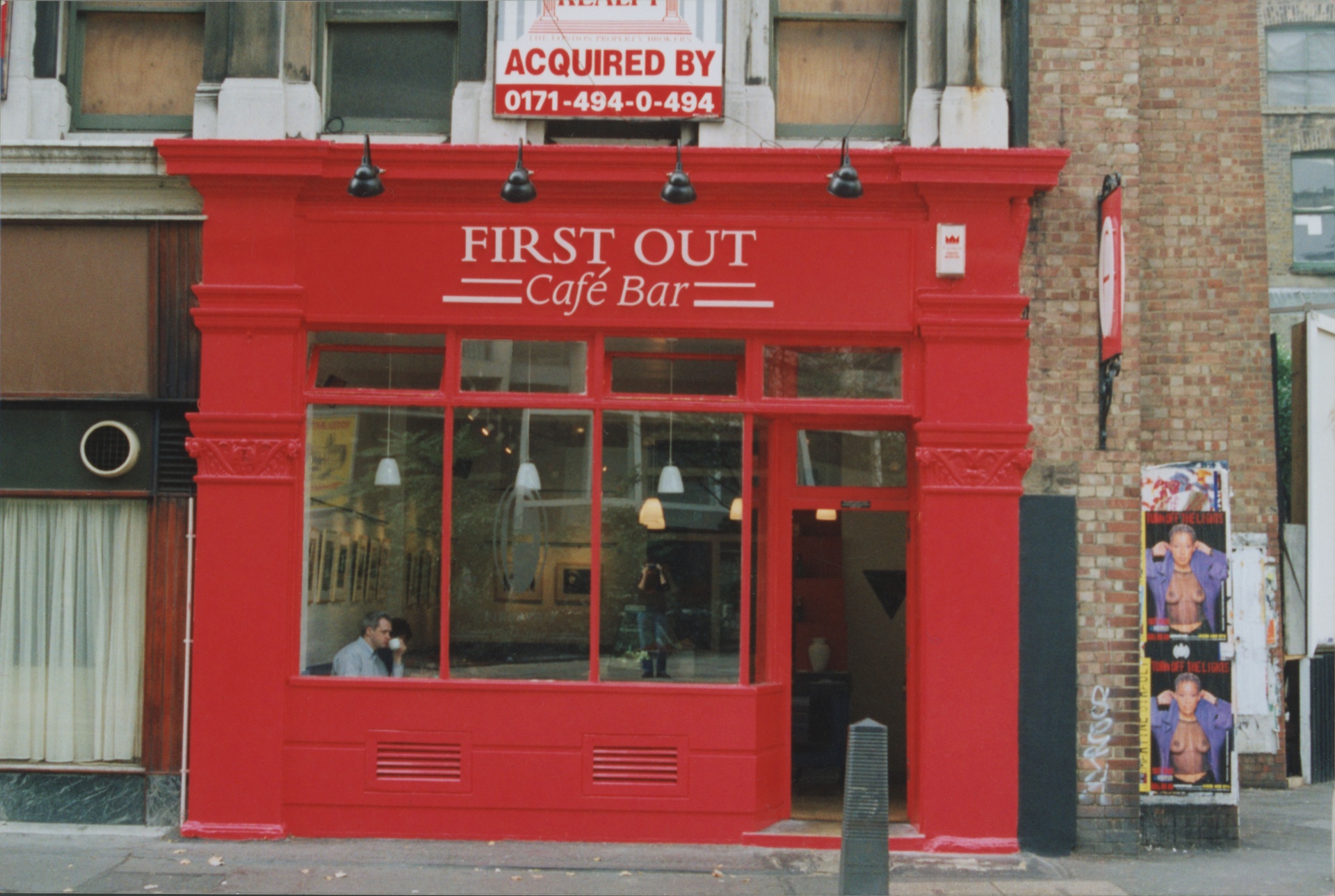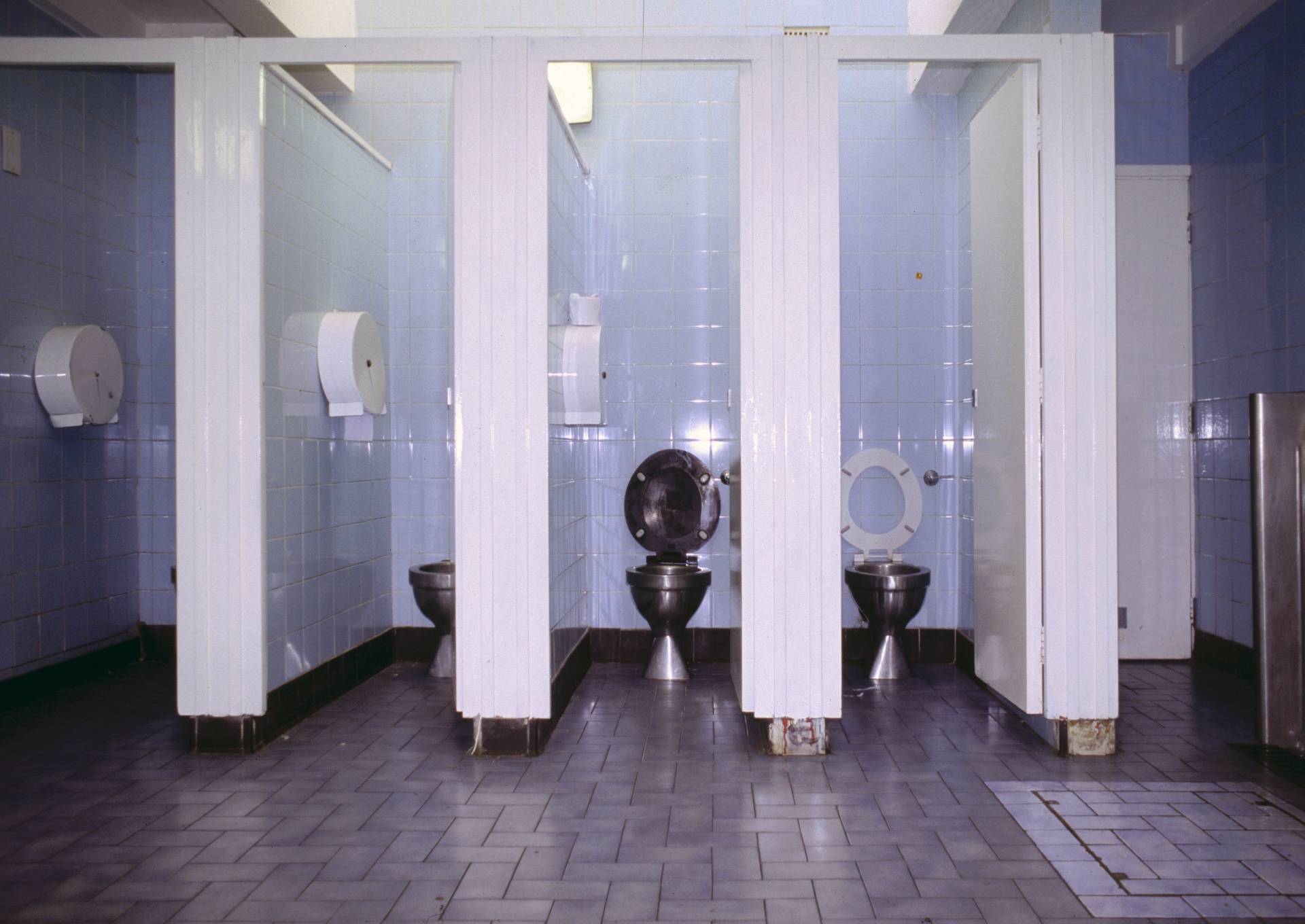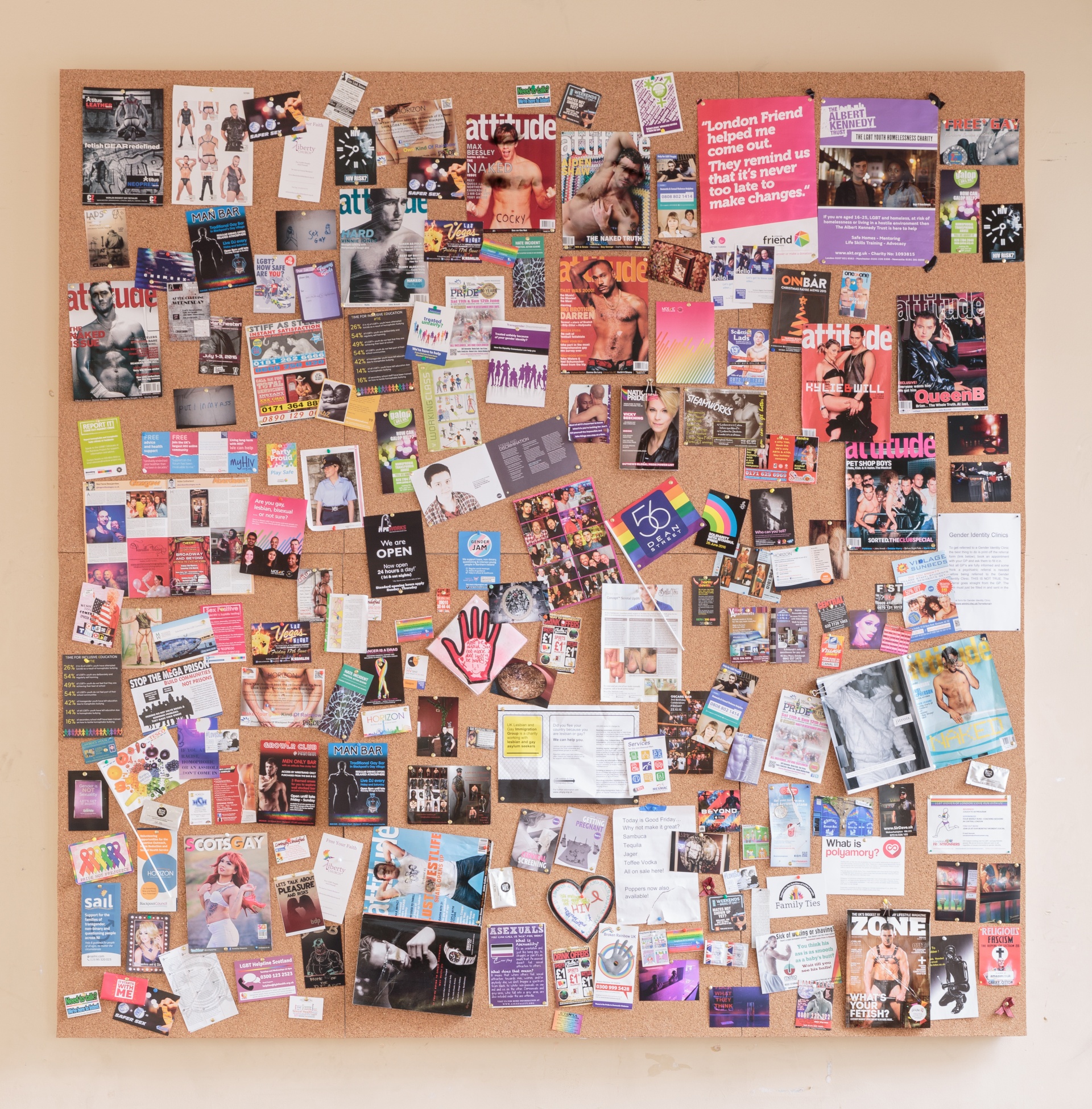This is the last article you can read this month
You can read more article this month
You can read more articles this month
Sorry your limit is up for this month
Reset on:
Please help support the Morning Star by subscribing here
Queer Spaces: London, 1980s — Today
Whitechapel Gallery, London
THE ROYAL Vauxhall Tavern — to its loyal patrons, simply the RVT — is an imposing Victorian pub in south London which made history in 2015 as the first building in Britain to be awarded grade-2 listed status for its significance to the LGBT+ community.
Surviving the Blitz, the bulldozers of “progress” and, so far, the developers’ beady eye, the tavern’s been home to exhilarating cabaret for decades and it’s nurtured the career of many drag queens — most notably, Lily Savage.
It was also a haven for countless gay men during the misery of the Aids crisis.
A campaign, led by RVT icon and London’s night czar Amy Lamé, fought the battle to prevent the venue from becoming yet another wine bar in a city of increasingly depressing uniformity.
This was no mean feat because other venues have not been so fortunate. The iconic First Out cafe, a relaxed alternative to the clubbing scene, closed its doors in 2011 and Camden’s famous Black Cap pub followed suit four years later. Over half of London’s LGBT venues have disappeared since 2006.

This is happening at a time when technology isolates just as much as it connects and online dating apps can be rife with prejudice. Meanwhile, teaching children about LGBT people is met with protest at the school gates and is debated on Question Time. The trans community in particular faces relentless media hostility.
The fact that safe spaces for queer people are struggling to survive is a worrying trend, brought into sharp focus in this fine — and free — exhibition on the heroes and villains, venues and artefacts of queer spaces in the capital.
Though they have existed ever since London itself has existed, for a long time they maintained an illicit, murky and unrecorded presence and the exhibition reminds us that queer people – usually gay men – once had no choice but to meet each other in some less than glamorous locations.
A series of photographs by Ralph Dunn of public toilets, as well as a long and narrow horizontal mirror at floor level only capable of reflecting feet, highlight a time when sexual possibilities for gay men, who frequently courted violence and imprisonment, were measured by furtive glances, subtle gestures and hidden codes.
Perhaps it was in knowing, reflexive opposition to the supremacy of heterosexual mores that Hannah Quinlan and Rosie Hastings created a huge noticeboard of LGBT-related impedimenta, The Scarcity of Liberty #2.

An act of unashamed queer disobedience, the saucy magazine covers, exotic club flyers and sexual-health leaflets, sourced from 170 venues across Britain, scream a defiant response to all those years of enforced secrecy.
The long march to liberation is explored in a documentary short about both the London Lesbian and Gay and Black Lesbian and Gay centres which, against the mercilessly regressive politics of the 1980s, somehow managed to offer support to marginalised groups, even when their main source of funding, Greater London Council, was abolished by she-who-must-not-be-named.
Crucial to such endeavours was, and is, the queer community’s particular brand of rebellious humour. That’s on show night after night by performers and drag artists in places such as the RVT, where regular Saturday night cabaret Duckie delivers wry political commentary, replete with titillating asides — think Donald Trump in fishnets and stilettos.
It’s hosted by Lamé herself who, on another video at the Whitechapel, explains her deep affinity to the RVT and the duty she felt to carry the “torch of performance history.”

Acceptance is the watchword of the queer community and its catholic choice of icons over the years should come as no surprise. Among the fascinating archival material on show is a letter from Central Station, a gay bar in King’s Cross, inviting the Queen Mother to a birthday party in her honour. It’s accompanied by a polite declination from Clarence House because she was rather busy.
Central Station is testament to the fact that such places are, and always have been, open to everyone. I’ve frequented the RVT with friends of all sexualities and, on one memorable occasion, my mum. We’ve always had a whale of a time.
So Queer Spaces is above all an invitation to step foot inside such bastions of alternative entertainment and community. By doing so, we'll help them endure for many years to come.
Runs at Whitechapel Gallery until August 25, opening times: whitechapelgallery.org












